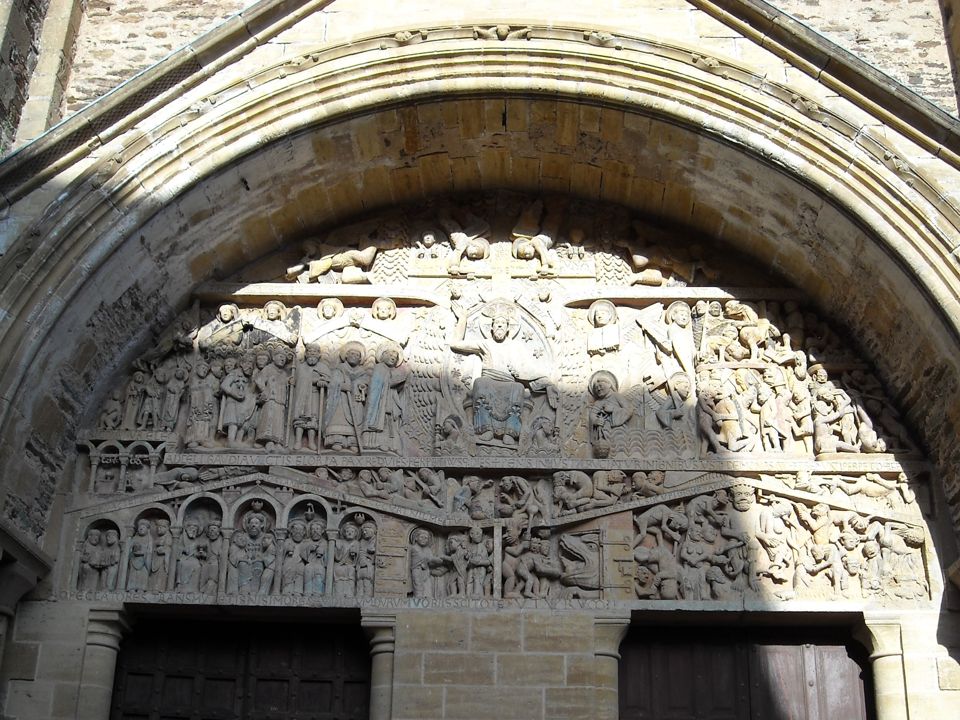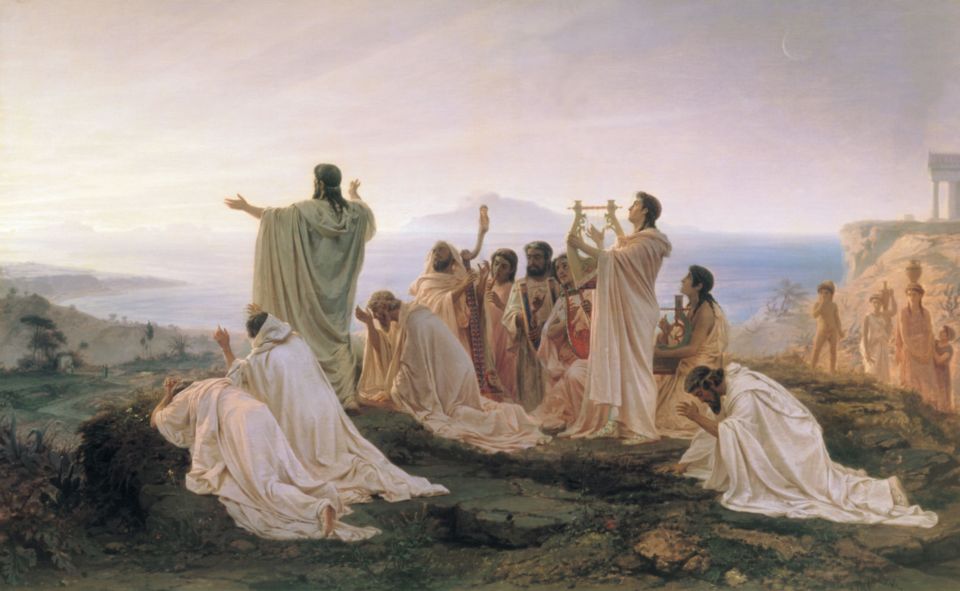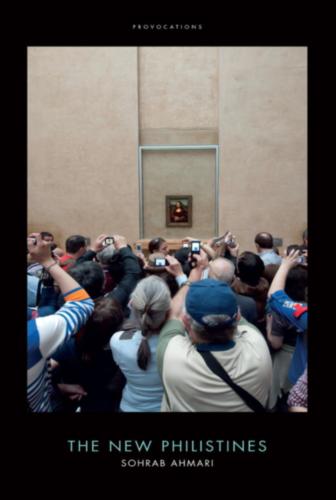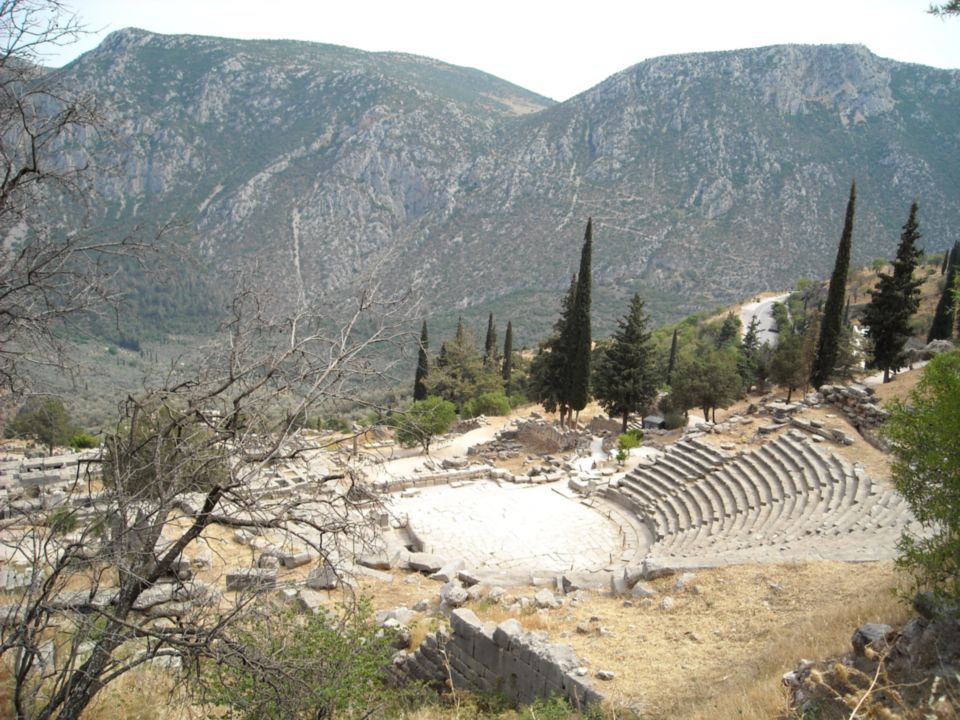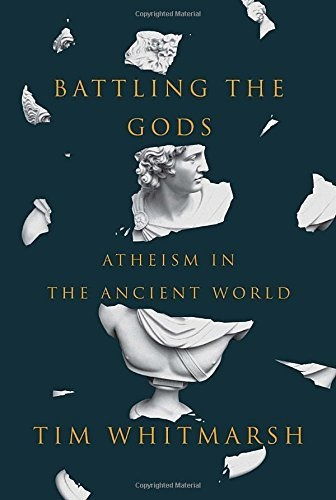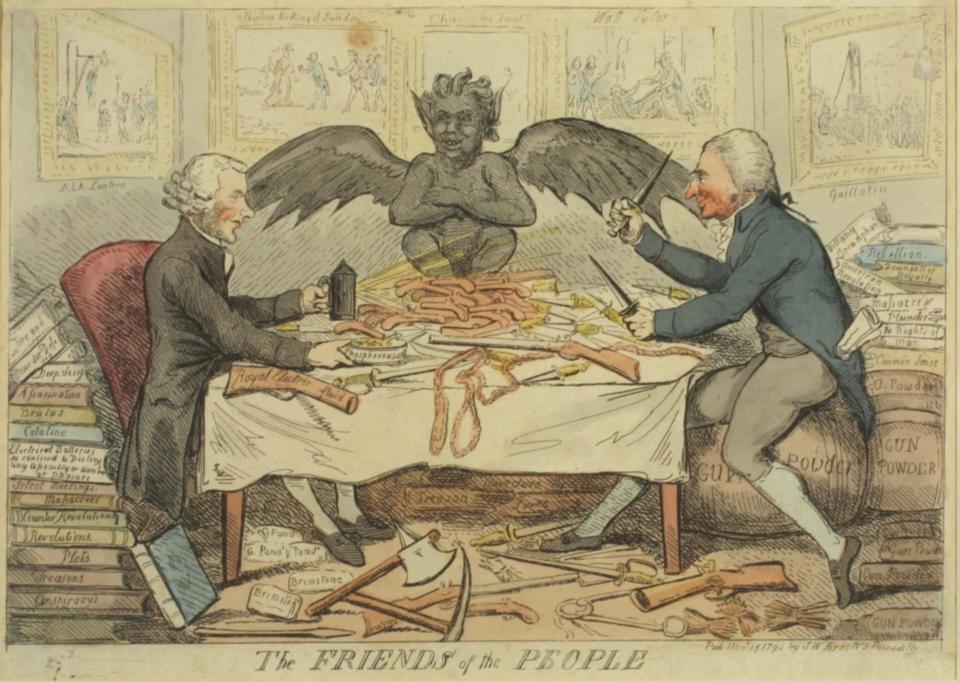[Editor’s Note: This review was written when Reza Aslan’s Zealot: The Life and Times of Jesus pf Nazareth, first came out in 2013. Given the book’s curious popularity, we thought it best to republish this review, in order to highlight Aslan’s “scholarship”].
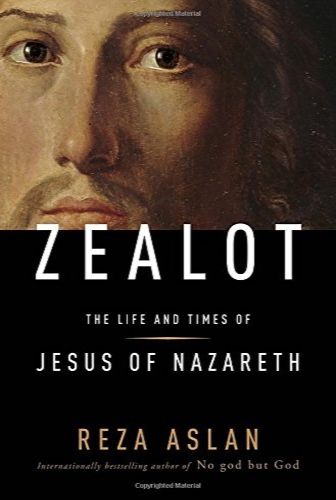 Reza Aslan’s biography of Jesus is an anachronistic book – it is more about our own era, and the author’s journey within, than it is about the time and place in which Jesus lived. As such, it is a compendium of sweeping statements and unsubstantiated generalities, backed up by lapses in logic and utter fallacy.
Reza Aslan’s biography of Jesus is an anachronistic book – it is more about our own era, and the author’s journey within, than it is about the time and place in which Jesus lived. As such, it is a compendium of sweeping statements and unsubstantiated generalities, backed up by lapses in logic and utter fallacy.
On the scholarly level, the entire book is a mishmash of hoary theories, long disproven and rightly forsaken.
Aslan’s supposed explosive and startling revelations are absurdities, like someone passionately trying to prove that the earth is flat. Consequently, he has nothing to offer that might change or advance our knowledge of Jesus in history. But that has never stopped anyone from hoodwinking the naive.
Aslan wants to give us Jesus the man, without any reference to Jesus the Christ. This approach is nothing new – Euhemerus and Leon of Pella, in the fourth century BC, established the fundamental parameters of such analysis: scratch a god and you find a man.
But is Aslan a worthy scratcher? Apparently not, since his book is filled with substantial errors and contradictions, held up by vapid assertions and simplistic assumptions.
Clumsy narratives are far easier to put together – intricacy is harder to deal with.
Terms such as, “Judaism,” “Christianity,” “paganism,” “empire,” “zealots,” “oppression,” “revolution” keep popping up, without any clear understanding of what these terms actually mean in the Roman world of the first century AD.
Antiquity was as knotty and intricate as our own world. Aslan’s book shows no awareness of this whatsoever. He seems to be intent on writing a script for a B-grade movie.
Clumsy narratives are far easier to put together – intricacy is harder to deal with. Aslan ignores the true, historical Roman world and fashions his own imagined one, which is fatuous and (most surprisingly!) conforms perfectly to the points he wants to make about his “Jesus.”
The errors begin rather immediately with the very sub-title of the book, “The Life and Times of Jesus of Nazareth.”
ERROR: JESUS OF NAZARETH
Aslan says that he knows ancient Greek – and yet he makes a sophomoric blunder in translation, which leads him to state falsely that Jesus was born in Nazareth and not Bethlehem, and that is why he was known as “the Nazarean…” “throughout his life.” (Correction: he was known as the Galilean).
Aslan bases his assertion on the Gospel (John 19:19-20), where we read that at the top of Jesus’ cross, the Romans placed a wooden sign (the titulus), which displayed a message written in the three languages common in first century Palestine, namely, Hebrew, Greek and Latin.
The Gospel (originally written in Greek) provides the text of the titulus as well. It begins with the phrase, Iesous ho Nazoraios.
As someone who supposedly knows Greek, Aslan should not be making any mistakes with a rather easy phrase, which he says means, “Jesus of Nazareth.” This is grammatically impossible.
The correct translation is, “Jesus, the Nazarene.”
In order to get “Jesus of Nazareth,” the original Greek has to be Iesous ho apo Nazoret. But that is not what John 18:18-20 says.
In a strategy that will be used throughout the book, Aslan then proceeds to fashion “proof” for his mistranslation.
What does “Nazarene” really mean? It is a reference to the famous passage in Isaiah 11:1 (“A shoot shall come out from the stump of Jesse, and a branch shall grow out of his roots”).
Where is that Occam’s razor?
As Robert M. Kerr very lucidly demonstrated, the term for “branch” in Hebrew is ne ṣer. The term “Nazarene” comes from this Hebrew word.
Thus, the phrase on the titulus literally meant, “Jesus of the branch.” Indeed, “branch” had a deep messianic meaning for first century Jews.
The readers of the original knew what they were reading – Jesus, the branch of Jesse, i.e., the Messiah – this man Jesus, is Jesus the Christ.
Also, the epitaph of the book is taken from Matthew 10:34: “Do not think that I came to bring peace on earth. I did not come to bring peace but a sword.”
Doubtless, Aslan wants to suggest that this verse summarizes his Jesus, the illiterate, peasant revolutionary.
Of course, this sword-saying is indicating a truth far more profound – that the teaching of Jesus will cut-off people from the world, even from families.
So, indeed, it is a revolution – but of the spirit, not of the world – Jesus answered, “My kingdom does not belong to this world” (John 18:36).
CONTRADICTION: RELIABILITY OF THE NEW TESTAMENT
At the very start of his book, Aslan declares the Gospels to be historically useless: “Simply put, the gospels tell us about Jesus the Christ, not Jesus the man” (xxvi). Fair enough. This is nothing new, and dates all the way back to Bruno Bauer, the professor of Karl Marx.
But why then is Aslan’s narrative of Jesus’ life drawn entirely from the Gospels? Why does he look for “proof” for each one of his claims in the Gospels?
Either the Gospels are historically useful sources for the life of Jesus the man, or they are not. They cannot be both useful and useless/
Of course, the Gospels are only useful to Aslan when they back up his claims. Other than that, they are useless to him.
Logic, evidently, is not a strong point/
ERROR: BANDITS AND ZEALOTS
Aslan tries to prove that Jesus was a zealot (a very old claim, in fact, first raised two-hundred years ago by Hermann S. Reimarus in his essay, “The Aims of Jesus and His Disciples”).
How does Aslan substantiate this contention? He turns to the Gospels (again).
Jesus was crucified between two robbers. The Greek word used for “robbers” is lestai (singular, lestes). Aslan “translates” lestai as, “revolutionary,” and argues that because Jesus is between two lestai, he must be a lestes also. The ultimate guilt by association! But is Aslan correct?
The word occurs frequently in ancient Greek literature, from Thucydides (Book I.5) down to the New Testament (where it occurs some fifteen times). It stems from the noun, leia, which means “plunder.” Thus, from the fifth century BC to the first century AD, lestes has always meant, “robber,” “bandit,” “plunderer,” “brigand,” “pirate.”
Where is Aslan getting “revolutionary?”
Multilingualism was the norm – unilingualism was very rare.
The Jewish historian Josephus (37–100 AD), first calls lestai two specific violent Jewish groups – the zealots and the sicarii, who were assassins (The Jewish Wars 2.254).
Josephus does not say that lestes means “revolutionary,” or even “zealot.” He is merely saying that these people are “bandits,” or criminals.
But for Aslan this is serious evidence, and he concludes that lestai must mean “revolutionary” because the two groups Josephus mentions did not agree with Roman rule.
Aslan seems not to know that lestes translates also the Latin term latro (“robber,” “brigand,”“bandit”). In most parts of the eastern Roman world, Greek was the common language (a legacy of Hellenism).
Thus lestes was chosen as the Greek equivalent of latro because it was deemed accurate by the people who needed to use these terms.
Both Greek and Latin have perfectly good words for “a revolutionary” (seditiosus in Latin whence comes the English, “sedition;” and stasiastes in Greek).
Why would Josephus and the Gospel-writers not use either of these two words if their intent were to speak about “revolutionaries?” Why say “robber” and really mean “revolutionary?” Again, logic intrudes.
Actually, Aslan is getting all this from S.G.F. Brandon’s two books, The Fall of Jerusalem and the Christian Church (1951), and Jesus and the Zealots: A Study of the Primitive Factor in Primitive Christianity (1967).
Back in 1984, E. Bammel and C.F.D. Moule destroyed this Jesus-as-a-zealot argument, once and for all. It seems Aslan has yet to hear about it.
anyone can be an expert in the age of Google
Simply put, “zealot” in the first century did not mean a revolutionary, or a resistance fighter against the Romans (this is Aslan’s fantasy).
Why? Because during the time of Jesus, there were no “zealots” in Palestine fighting the Romans – all that came many decades after Jesus! Perhaps math is not a strong point with Aslan, either.
Further, “zealot” derives from the Greek zilotes which means an “emulator” (as in Isocrates and Aeschines), or an “ardent admirer”, and therefore a “follower.”
The first one to say that “zealots” were political in any way is Josephus, and we have to be careful with him as a historical source for Jesus, because he is not a contemporary (he was born at the time of Jesus’ crucifixion and he died in 100 AD).
Other historical sources do not link “zealots” with politics at all, let alone struggles against Rome – but Aslan knows nothing about this.
During the time of Jesus, “zealot” meant a Canaanite (“Simon the Canaanite” in Luke 6:15 becomes “Simon the zealot” in Acts 1:13). In fact, “zealot” also meant a Canaanite convert to Judaism (such conversions were frequent).
Thus, when Aslan calls Jesus a “zealot” – does he really know what he is doing with this convoluted Greek term? It is obvious that he does not.
Simply put, by asserting that Jesus was a zealot, Aslan is stating that Jesus was a Canaanite convert to Judaism!
Thus, Aslan’s entire thesis is simply an utter absurdity, built entirely on his own ignorance.
ERROR: THE FOURTH PHILOSOPHY
Aslan gets further confused when he maintains that brigands, zealots and the sicarii were all followers of the Fourth Philosophy, and he represents them as one unified group whose aim was the ousting of the Romans from Judea.
The sicarii (“dagger-men”) were terrorists who randomly stabbed people they deemed to be the enemy. As to who “the enemy” was for these terrorists? Anyone they labeled as such.
There may be a very tenuous link between the sicarii and the Fourth Philosophy – but there is no discernible connection with zealots.
Josephus is the first to coin the phrase “the Fourth Philosophy” by which he mean a form of Judaism that was different from the Sadducees, the Pharisees, and the Essenes.
Again, Josephus is not a contemporary of Jesus, and he is writing about political situations that simply did not exist in Jesus’ day.
Of course, Aslan is blissfully unaware of any of this. For him, “Judaism” is some over-arching “religion” that he has constructed to suit his agenda.
In fact, there were many Judaisms – Sadducees, Pharisees, Essenes, Herodians, Boethusians, Levites, Scribes, Elders, Disciples of John, Samaritans, and (if Josephus is right), the Fourth Philosophy.
Each of these Judaisms was distinct from the other, so we do not really know which type of Judaism Jesus himself followed.
There is no evidence in the book that might suggest Aslan really knows anything about Judaism, and what he does say about it is thoroughly misinformed, misconstrued, distorted, and ridiculous (for example, he actually believes that the Jews carried out crucifixions).
Thus, the Fourth Philosophy just was not around when Jesus lived and preached in Palestine. Aslan is taking a political situation long after the time of Jesus, retro-projecting it back to Jesus’ day – and then concluding that Jesus himself was part of this future political situation – therefore he was a revolutionary.
This is not history – it is mere overzealous fantasy.
CONTRADICTION: THE OPPRESSION OF ROME
Another anachronism that Aslan constructs is “the Roman Empire,” which he describes as an organized system of oppression of vast proportions.
This is not surprising given the broad influence of post-colonial discourse in present-day academia (thanks to the silliness engendered by Edward Said).
destroys his own arguments
But does such an analysis have any merit when dealing with antiquity? No, it does not, because the Roman world was far different than that imagined by Aslan.
Needless to say, ancient Rome is another subject that Aslan knows nothing about – but anyone can be an expert in the age of Google.
In complete contradiction to what Aslan declares, the historical record itself cannot sustain Rome as thoroughly oppressive – and this record unravels whatever Aslan has to say about Rome and its supposed “oppression.”
For example, he calls Palestine “occupied territory” (10), under “the boot of imperial” Rome (16).
Then he is forced to admit that Rome was very tolerant: “As generally tolerant as the Romans may have been when it came to foreign cults, they were even more lenient toward the Jews…”(14).
So, was Rome oppressive or tolerant? It cannot be both. Logic once more raises its head.
Aslan likely knows that evidence is stacked against him if he says that Rome was utterly despotic and unjust (although that is how he describes it in his book).
The reality of the Roman world dismantles his reasoning.
If what he says is true, how can he explain the fetiales, the guild of priests who oversaw treaties and foreign relations, and who were often critical of what Rome might want to do, and the caduceatores, the peacemakers, who actively worked to avoid war?
And how can he explain the fact that Roman law forbade the state to wage war (only the collegium fetiales could undertake that duty, after the Roman Senate made a case for a war)?
Further, how can he explain the Pax Romana, when peace endured throughout the Roman Empire for over two-hundred years (an event unprecedented in human history)? Jesus’ entire life was spent in this Pax Romana.
a tedious mishmash of hoary theories, long forsaken
The fact is most nations fought Rome because they wanted to get into the empire – because they wanted to be Romans.
Why would other nations fight to be Roman, if the Romans were brutal and oppressive? Aslan, as usual, has no clue about any of this.
If the Roman Empire were oppressive, would it have lasted until 1452 (when Byzantium fell to the Turks) – that is more than over two thousand years? No empire has endured so long.
Then, the subsequent Ottoman Empire saw itself as a continuation of the Roman Empire in the east, for the Turks came to possess the idea of Rome, that is, Romanitas, or Romanity, Roman-ness – and they called their realm “Rûm,” or Rome. Again, why, if Rome was so horrible and so hated?
Some philosophers, like Rémi Brague, convincingly argue that the Roman Empire still exists and we are very much part of it. The essential character of our civilization is ultimately an extension of the Roman world.
In fact, where would the United States be without a blueprint of the Roman Republic?
All this would be impossible if Rome were inherently oppressive and everyone wanted to be rid it.
Suffice to say that Aslan’s understanding of Romanity is nonexistent, which is curious since the man Jesus, whose life story he wants to tell, was very much a product of Romanitas.
Rome was in Palestine because of treaty obligations that stemmed back to 161 BC. Aslan distorts this when he delves into the paradigm of conquest and hegemony, which serves no purpose other than to highlight his romantic construct of revolutionaries fighting for freedom. (He likely has present-day Palestine in mind).
The fact is the majority of Jews preferred the peace and stability guaranteed by Roman rule over their own indigenous priestly theocracy. Most Jews greatly benefited from being Roman citizens and never supported any sort of insurrection.
Further, the ideals of pacifism were the majority view among the Jews living in the Roman world.
The violent factions came much later, after the time of Jesus, like the sicarii. These factions were in the minority.
However, their selfish actions brought the most harm to the entire Jewish nation. That is why Josephus hated them, because this violent minority destroyed the peace and stability enjoyed by the vast majority.
Aslan knows nothing about the reality of the Roman world in the East. He has created a cartoon version that might serve as entertainment, but which has nothing to do with historical truth.
ERROR: THE TRIBUTE EPISODE
Much is made of the famous episode of the tribute owed to Caesar and to God (Matthew 22:15-22: “render unto Caesar what is Caesar’s and unto God what is God’s”).
Aslan declares this to be a summary of the zealot’s creed (78). This idea comes from S. G.F. Brandon once again.
To back up this absurd claim, Aslan tries to do some fancy footwork with Greek. He states that “render” is a mistranslation of the original Greek term, apodidomi. (We are already familiar with his “knowledge” of Greek, but he needs to demonstrate it once again).
All he can do is garb his ignorance in folds of plausibility.
He argues, very confusingly, that the real meaning can only be accessed if this term is broken down into its two component parts.
Then, the two parts have to be translated separately.
Next, the two separate translations should be smashed together to yield the most accurate meaning for apodidomi. Right…
Thus, for him, apodidomi actually means, “to give back again” (77). Where is that Occam’s razor?
Aslan has no idea that there is an actual difference between morphophonemics and semantics.
So, by his logic, in order to understand what the word “obvious” really means, we have to split it up into its two parts, which ultimately come from Latin.
First, there is ob, which in Latin can mean “on,” or “against;” and then we have viam, which, again in Latin means, “the way,” “the road.”
Having done such needless gymnastics, we can now declare that the word, “obvious” really means, “to be on your way,” or “to go against the road, or against traffic.” Of course!
In brief, apididomi means exactly how it has been translated by real scholars of Greek, “to render,” or “to pay back an obligation, or a debt.”
Thus, Jesus is teaching about fulfilling one’s obligations – both mundane and spiritual. There is nothing here about fighting Romans, as Aslan wants to argue.
CONTRADICTION: ILLITERACY OF JESUS
Aslan claims that 97 percent of the Jewish peasantry was illiterate (34). He does not divulge the actual Roman records that provided him this figure, since Roman statistics on literacy in their empire have yet to be unearthed by archaeologists.
Nor do we know if they even did such surveys. Why would they? But that cannot stop Aslan’s “scholarly” insights.
He gets this figure from the convoluted reasoning offered by Catherine Hezser, although Aslan does not mention her in his Bibliography (as with so many of his mentors).
Aslan needs this fake illiteracy rate to further his contention that since Jesus was a peasant, he was therefore illiterate. He just assumes that Jesus did not belong to the educated 3 percent. Again, logic is an issue.
a compendium of sweeping statements and unsubstantiated generalities
Whatever the literacy levels were of the Jewish peasantry, the fact remains that there is enough evidence to indicate the importance of writing in ancient Judea, as epigraphic finds (papyrus hoards and the library at Qumran) clearly demonstrate.
All this material suggests widespread literacy in Hebrew, Aramaic and Greek. If literacy were so low, why did Paul write letters, and why were the Gospels even written, if 97 percent of the population would never be able to read them?
Three of the gospels (excluding Luke) were written for Jewish readers.
And, there are over 5,000 manuscripts of the New Testament in Greek, some 10,000 in Latin, and thousands in other languages that were part of the Roman world (like, Armenian, Coptic and Ethiopic).
In fact, manuscripts of the New Testament are the most numerous for any text from the ancient world.
Who were all these manuscripts for, if almost everyone was illiterate?
Literary culture in the first century was rich and diverse (there were even Jewish novels in this era) – and it is a culture that is entirely unknown to Aslan.
Interestingly, just a few pages later, Aslan contradicts his own thesis. He states: “By connecting his miracles with Isaiah’s prophecy, Jesus is stating…”(111).
Is not this process of “connecting” a literary text with one’s own ideas known as “literary allusion?”
How could an illiterate peasant be involved in genuine literary activity without having read the book of Isaiah?
Complicating matters is the fact that the Scriptures referred to in the New Testament are the Septuagint (LXX) which is in Greek and not in Hebrew. Thus, Jesus would also have to understand Greek, along with Hebrew.
Of course, Jesus could have memorized these passages. But that would suggest intensive schooling, since someone would have had to read Isaiah aloud and enough times for pupils to memorize verses deemed important.
However, Aslan has already told us that his Jesus was unschooled (35).
But now suddenly we have an educated Jesus, intellectually challenging his compatriots, and using bookish arguments. An uneducated, illiterate Jesus makes no sense, even in the make-belief world of Aslan.
As an aside, if Jesus were illiterate, how does he know about the intricacies of Hebrew writing (Matthew 5:18) – the yod w’kotz shel yod (the jots and tittles)?
Which is it, then? Was Jesus literate, or not? He cannot be both. Aslan actually says he’s illiterate but has him behave like a highly educated man. The evidence once again runs counter to the thesis.
ERROR: HEBREW OR ARAMAIC
Aslan makes the sweeping claim that Aramaic was “the primary language of the Jewish peasantry: the language of Jesus” (35).
It is not clear if Aslan actually knows any Hebrew or Aramaic, or any other Semitic languages (we have already learned that his Greek is non-existent). Nevertheless, his assertion is completely false.
Aslan’s greatest strength is inventing conspiracy theories
Linguistic reality in first century Palestine was complex, where the majority of people spoke three or four languages (Hebrew, Aramaic, Greek and Latin).
Each language had a function which was intimately connected to particular social and economic strata. It all depended on who one was speaking with, since different aspects of daily life required one or more of these four languages.
Multilingualism was the norm – unilingualism was very rare, even non-existent, because people needed more than one language to function in the Greco-Roman world.
This is a concept unilingual North Americans have great difficulty understanding.
In Galilee, the true homeland of Jesus, Hebrew was the spoken language, and it remained so well into the fourth century AD. Thus, Jesus grew up speaking Hebrew – not Aramaic, as Aslan wrongly contends.
Epitaphs, mosaics, and synagogue inscriptions firmly point to trilingualism, with Hebrew, Aramaic, and Greek thoroughly intertwined.
For the Jews, Hebrew was, and is, the lashon-haq-kadosh, the sacred language used by God.
Aramaic, also a Semitic tongue, is closely related to Hebrew. It exists in two dialects – western ones used in Palestine, and eastern ones used in Syria, i.e., Syriac, or Talmudic Aramaic.
Many Jews (certainly not all) preferred to use Aramaic in daily life because they deemed Hebrew too holy for mundane purposes. This explains why the Targumim are in Aramaic.
Aslan says that he knows ancient Greek – and yet he makes a sophomoric blunder in translation
Jesus’ use of the three languages current in first century Palestine is clearly evident in the Gospels. Sometimes, he speaks Hebrew and Aramaic (Matthew 27:46); sometimes he speaks only Aramaic (Mark 5:41); and sometime he uses pure Greek (Matthew 16:18).
This complex multilingual reality is also reflected much later in the various documents of Simeon bar Kochba.
And this is why the titulus above Jesus’ head on the cross is in Hebrew, Greek and Latin.
(By the way, why bother with such a placard, if 97 percent of the population is illiterate?).
Aslan’s declaration that Hebrew was “barely” understood by Jews (34) is therefore meaningless. This view was current until the discovery of the Dead Sea Scrolls in 1948, which thereafter firmly established Palestine as a multilingual place.
It is strange indeed that Aslan is using a pre-1948 explanation, which has been long demolished. No doubt, Aslan prefers ignorance over fact.
FREUDIAN-SLIP
There are quite a few Freudian-slips throughout the book. One example may suffice.
Aslan states: “By the time Jesus set up his ministry…”(95).
Why is a revolutionary setting up a ministry? One would think that he would be busy putting together a deadly arsenal (with the requisite ballistae, a scorpio or two, and various small arms), getting recruits (certainly way more than just twelve), and that he would be hunting around for an out-of-the-way field to establish his boot camp (as Simeon bar Kochba indeed did do some six decades after Jesus).
It would be tedious to go through all such Freudian-slips. They are Freudian because despite Aslan’s best efforts, the truth does manage to slip out – in his own arguments.
FURTHER ERRORS
Mary (page 37): In Mark 6:3, Jesus is called the “son of Mary.” Aslan sees this as a record of Jesus’ illegitimacy. This reference, of course, is not about legitimacy – it is about an emergent veneration of Mary (Mariology), which had already begun in the first century.
Despite not knowing any Semitic languages, Aslan proceeds to “translate” the reference to Jesus in Mark 6:3 into Aramaic as, “Jesus bar Mary!” (If he wants the Aramaic version, the proper translation is, “Yehoshua or Yehsua bar Miriam”). Aslan is likely using C. P. Thiede here, though Thiede is not mentioned in the Bibliography.
Crucifixion (page 155): Aslan says that crucifixion was reserved “for the most extreme political crimes: treason, rebellion, sedition, banditry.”
Aslan knows nothing about Judaism
Once again, the unsubstantiated sweeping statement. Aslan needs to closely read the lex Puteoli. Crucifixion was simply a method of execution for crimes that required capital punishment.
It had nothing to do with politics, as Aslan imagines. There are very many instances of non-political criminals being crucified (Roman or not). For example, Verres crucified Roman citizens without any qualms (famously, Gavius); and Galba crucified a murderer who had poisoned his ward.
As well, if Romans citizens wanted to punish, or get rid of, slaves, they could have them crucified (it was cheap). Women also were crucified. Tiberius had the priests of Isis crucified. Cicero frequently mentions crucifixion of Roman citizens. Of course, Aslan is simply ill informed about the Roman world.
Paul (page 183-196): No, Paul did not invent Jesus the Christ. Jesus himself proclaimed his divinity by elaborating the Jewish idea of agency, in that God acts through one person (angel, patriarch, prophet, finally the Messiah). Aslan again displays his ignorance.
Paul was not ostracized and despised by the Jerusalem Christians. Aslan is simply repeating F.C. Bauer’s very old thesis, long discredited. Paul became part of Christianity – he did not create it – and Paul saw Christianity as Judaism fulfilled, and he understood the church as the New Israel.
Throughout the book, there are many, many other such errors, sweeping-statements, contradictions, and outright falsehoods. Detailing these any further would be pointless.
Aslan’s greatest strength is inventing conspiracy theories (which seem always to sell well).
Lastly, a word on Aslan’s style, since he teaches creative writing. Throughout the book there is a tension between two stylistic registers – fiction and nonfiction. It seems Aslan really wants to write a novel.
The book begins with an appeal to immediacy, with a sudden and jarring use of the second-person personal pronoun (“you”).
We are then offered some contrived “sights and smells of ancient Jerusalem,” and we even get to witness an assassination.
Such techniques may work in a cheesy novel, but they have no place in a book claiming to be factual history.
There is also a tendency to over-write, and thereby throw up the fog of purple prose.
Logic…is not a strong point with Aslan.
For example: “Zeal, the spirit that had fueled the revolutionary fervor of the bandits, prophets, and messiahs, was now coursing through the population like a virus working its way through the body”(53).
And, “…the Roman swarm swept through the upper and lower city, littering the ground with corpses, sloshing through streams of blood…”(67).
Then, there are the frequent and needless clichés: the “boot of an imperial power”(16); “large swaths of the countryside”(17); “handful of sects”(37); “rampaged through the countryside, burning with zeal”(44); “Jesus’s neighbors were a different story”(94). And so on.
Lastly, the pluperfect tense is much too liberally used throughout the book.
Hardly a page can be turned without encountering, “would have,” “might have,” “could have.”
No doubt this is a nervous tick that points to Aslan’s tenuous knowledge. All he can do is garb his ignorance in folds of plausibility.
It is customary to look for some merit in a book, and it is this: it is work of psychotherapy.
In the Author’s Note, Aslan describes his encounter with Jesus the Christ, and then his loss of faith (because he could not overcome doubt). Such struggles happen to many, and such people move on.
But Aslan needs to hang on to Jesus in some way. Thus, he creates a Jesus of his own making; a Jesus that he can be happy with.
One can only hope that having worked it all out in the pages of his book, Aslan now feels much better.
As for Jesus, he belongs to history and to faith, and Aslan knows nothing about him.
[The photo shows, “The Mocking of Christ” by Carl Heinrich Bloch, painted in 1880]
